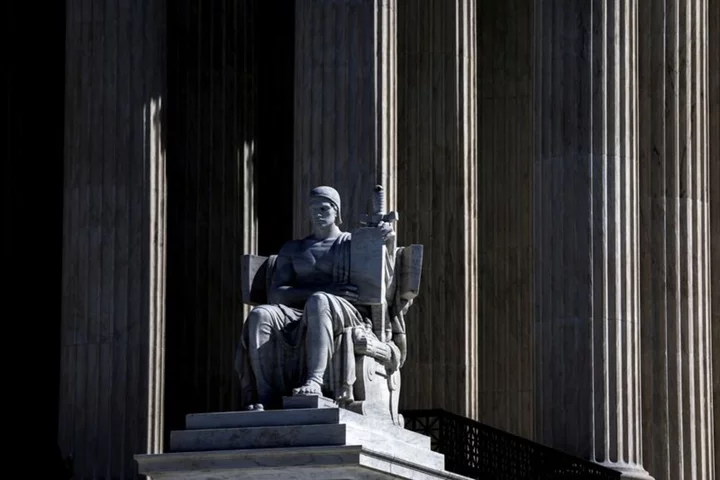
US Supreme Court weighs if public officials can block critics on social media
By John Kruzel and Andrew Chung WASHINGTON (Reuters) -The U.S. Supreme Court on Tuesday waded into the issue of free
2023-11-01 00:50
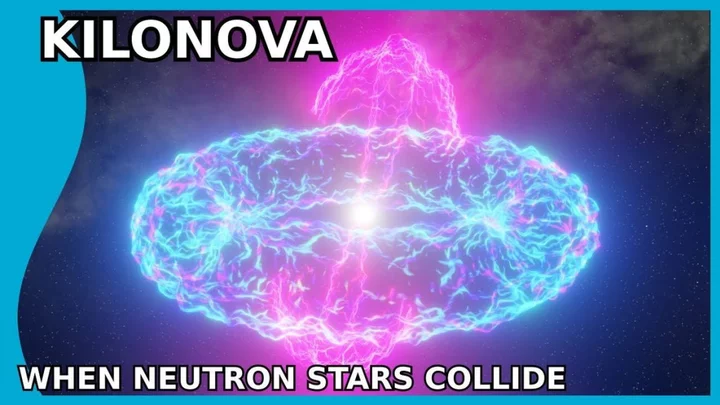
Scientists believe close kilonova explosion could threaten all life on Earth
Scientists have worked out how close a neutron star collision would have to be to threaten all life on Earth, in a not-remotely-terrifying new study. The event, known as a kilonova, is among the most powerful and explosive in the known universe. It’s not quite as bright as a supernova – but we should still keep our distance. Haille Perkins, team leader and a scientist at the University of Illinois Urbana-Champaign, told Space.com: “We found that if a neutron star merger were to occur within around 36 light-years of Earth, the resulting radiation could cause an extinction-level event.” That’s about 212 trillion miles – which seems like quite a large danger zone. But we need not worry, apparently. Kilonovae are extremely rare and difficult to spot, because they happen so quickly. Scientists, including those from the University of Warwick, recently managed to observe one by using the James Webb telescope. The explosion first produces a blast of gamma rays which lasts for just seconds. If we got caught in one of those, it would fry us all rather quickly. That’s pretty unlikely because they go in two thin lines out from the centre of the blast. They also cause an afterglow of X-ray emissions in the surrounding dust and particles. If we’re within 16.3 light years of those, we’d be in trouble. But the worst bit is the cosmic rays (of course!) – energetic charged particles spreading out from the explosion in a bubble. If these hit Earth, they would strip the ozone layer and leave us vulnerable to ultraviolet rays for several thousand years. That would be a bummer because, again, we’d all die. Fortunately, kilonovae are so rare that we’re more likely to get hit by an asteroid, added Perkins. She said: “There are several other more common events like solar flares, asteroid impacts, and supernova explosions that have a better chance of being harmful.” That’s good then. New kilonova discoveries In the most recent kilonova, it was the gamma rays that alerted the astronomers to the fact something big was going down. Then, they got in touch with various telescopes and detectors to ask them to focus on the bit of the sky where the burst had come from, and bingo: kilonova. Here's what it looked like on the JWT's feed. One of the major discoveries from this one is that kilonovae produce an element called tellurium, a relatively rare element on Earth. They also worked out where the two neutron stars came from: a spiral galaxy about 120,000 light years away from the location of the final explosion. That’s about the diameter of the Milky Way, and just a little further away than the mere 36 light year danger zone, then. But it’s food for thought nonetheless, eh? How to join the indy100's free WhatsApp channel Sign up to our free indy100 weekly newsletter Have your say in our news democracy. Click the upvote icon at the top of the page to help raise this article through the indy100 rankings.
2023-11-01 00:27
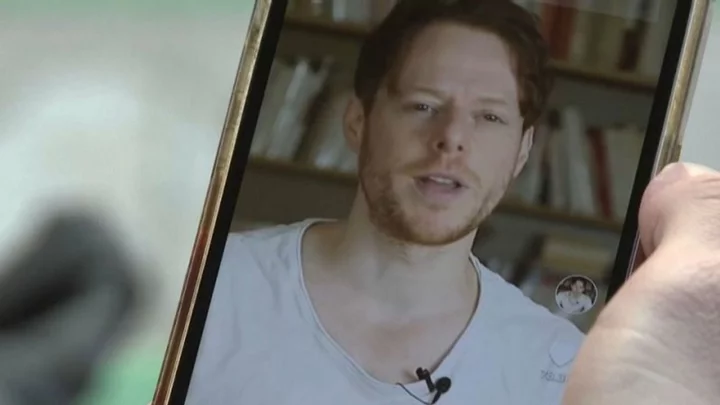
Scientist claims that humans have ‘no free will’ after decades of research
Human beings are fascinating creatures and one of the oldest philosophical debates is over whether people truly have free will or not. For millennia, scientists have debated over whether free will is simply an illusion of the mind and is a concept that doesn’t even exist, or, if our species naturally possess it. Some experts, such as the philosopher Bernardo Kastrup, argue that we do have free will. He defined it as existing “if our choices are determined by that which we experientially identify with”. Kastrup claimed that his “tastes and preferences” are “consciously felt by” him, thus the choices he makes are “determined by these felt tastes and preferences”. Essentially, Kastrup argues, we are able to choose what action to perform and this gives humans a level of free will. On the other hand, neurobiologist Robert Sapolsky from Stanford University believes humans don’t have any free will, after studying the subject for “decades”. In his book Determined: A Science of Life Without Free Will, Sapolsky argues that almost all of our behaviour as humans is beyond our own conscious control. He argued: “The world is really screwed up and made much, much more unfair by the fact that we reward people and punish people for things they have no control over. “We’ve got no free will. Stop attributing stuff to us that isn’t there.” Sapolsky believes that behaviour that we believe originates from free will is actually related to your environment, body, upbringing and genes. Speaking on the CultureLab podcast by New Scientist, Sapolsky explained: “In terms of my orientation, my basic approach is you look at a behaviour and someone has just done something that’s wonderful or awful or ambiguously in-between or in the eyes of the beholder, but some behaviour has happened, and you ask, 'Why did that occur?' and you’re asking a whole hierarchy of questions.” He continued explaining that the prompts to our behaviour could include, “which neurons did what, 10 milliseconds before” and may even originate from “this morning’s hormone levels” and the impact this has on your sensitivity levels in the brain. Additionally, behaviour, he argues can determined by prior trauma and even go back to the “childhood and foetal environment” and our individual genes. To summarise, he argued: “If you’re talking about genes, by definition, genes and behaviour, by definition, you’re talking about evolution and you’re talking about neurobiology and genetic variance and neuronal function. “If you’re talking about, you know, early trauma in life, you’re talking about epigenetics and you’re talking about adult propensity. “So, they’re all one continuous seam of influences, and when you look at it that way, there’s not a damn crack anywhere in there to shoehorn in a notion of free will.” Sign up to our free Indy100 weekly newsletter How to join the indy100's free WhatsApp channel Have your say in our news democracy. Click the upvote icon at the top of the page to help raise this article through the indy100 rankings.
2023-10-31 23:28
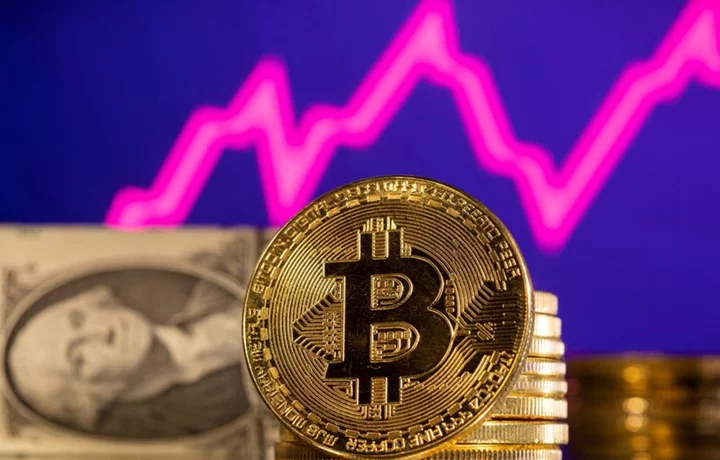
Cryptoverse: As good as gold? Spot bitcoin ETFs aim to whip up US demand
By Suzanne McGee Bitcoin, the original crypto rebel, is racing into the heart of the financial establishment with
2023-10-31 19:53
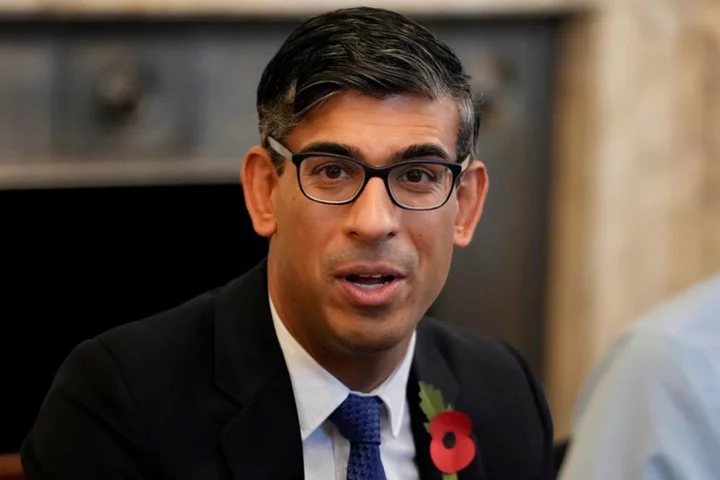
Britain's AI summit: what can it achieve?
By Martin Coulter LONDON (Reuters) -Britain will host the world's first global artificial intelligence (AI) safety summit this week to
2023-10-31 19:21
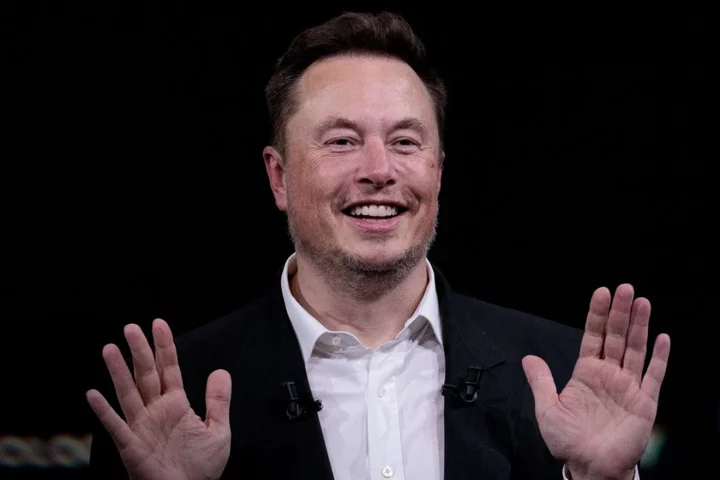
X now valued at $19bn – less than half of what Elon Musk paid for it
Elon Musk’s X is now valued at about $19bn or less than half of what he paid to buy the social media company, according to a new report. The multibillionaire Tesla and SpaceX chief last year finally bought the microblogging platform that was formerly called Twitter for the price of $44bn or $54.20 per share. Mr Musk’s purchase was completed after a months-long legal battle with the company. A new internal valuation has now found there to have been a 56 per cent decrease in the company’s value over the last 12 months, suggested internal documents. Stock grants handed out to employees showed X/Twitter is now worth about $19bn, Fortune reported on Monday. Mr Musk earlier said he had overpaid for the social media platform that he called “an inverse start-up.” In March, he told employees in an email that they would receive stock awards based on a $20bn valuation of the firm. The valuation drop comes as several high-profile advertisers have withdrawn after the Tesla titan’s controversial takeover of the company. Mr Musk’s reign of the platform has been marred by mass layoffs, the chaotic roll out of a number of new features, including the site’s verification process, and the reinstatement of previously suspended high-profile accounts. The company was also rebranded X along with a new logo to replace the bird icon that had been there since the platform’s creation. There have also been rising concerns around X’s content moderation approach. The EU recently opened an investigation into the company as misinformation linked to the Israel-Hamas conflict began to spread on the platform. In July, Mr Musk shared that X is “still negative cash flow” with a “50 per cent drop in advertising revenue plus heavy debt load”. Banks involved in financing the multibillionaire’s deal to buy Twitter are also reportedly struggling to mitigate the impact of platform’s decline in value on their balance sheets. The Tesla and SpaceX boss, however, has remained optimistic about the future of the platform. Mr Musk claimed in an email last year that he saw a “clear, but difficult, path to a >$250B valuation” for the company. In a recent company meeting, he also reportedly expressed his belief that the rebranded X could serve as an all-purpose app with a range of features like job recruitment and dating services. “We’re rapidly transforming the company from sort of what it was, Twitter 1.0, to the everything app with an all-inclusive feature app where you can basically do anything you want on our system,” he said, according to The New York Times. The Independent has reached out to X for a comment. Read More Elon Musk slammed by Israel for offering to send Starlink to Gaza Elon Musk says X posts with misinformation are ‘ineligible for revenue share’ Twitter adds video calling – and lets strangers ring you Elon Musk was ‘almost in tears’ on Tesla earnings call, analyst claims Slack to retire its status account on Elon Musk’s X Tesla’s profits dip as Musk goes on rant about staff working from home
2023-10-31 14:49
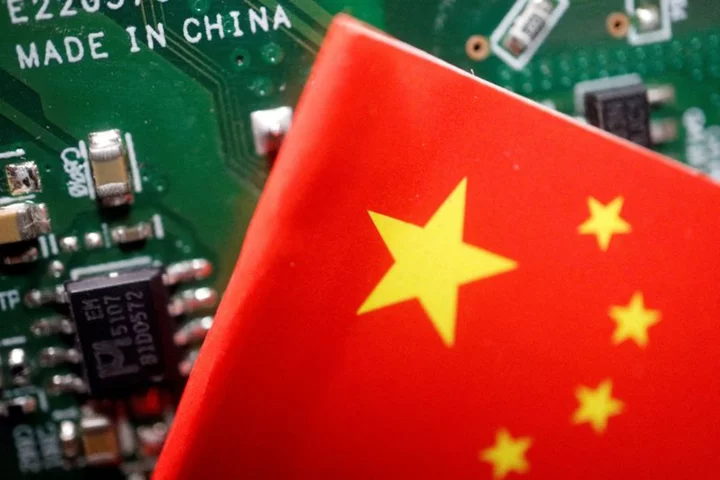
China's semiconductor state fund invests $2 billion in memory chip firm
BEIJING China's state-backed chip investment fund has invested 14.56 billion yuan ($1.99 billion) in a memory chip company
2023-10-31 13:49

Taiwan's Powerchip chooses northern Japan for planned $5.4 billion fab
TOKYO Taiwanese chipmaker Powerchip Semiconductor Manufacturing Corp and Japanese financial firm SBI Holdings said on Tuesday they have
2023-10-31 13:21

Apple MacBook Pro: New laptops revealed with new chips – and new colour
Apple has revealed an updated version of its MacBook Pro, featuring new chips and a new colour. The new computer was launched at its ‘Scary Fast’ event. The only other launch from the event was an update to the iMac, which was first released in 2021, which receives a new processor but no other changes. Both the new laptops and the updated iMac are powered by Apple’s new M3 chip. That is the third generation of the company’s own Apple Silicon chips, since it began producing them in 2020. Apple said that the M3 chip was around 15-30 per cent faster than the previous M2. But it preferred to compare its performance with the Intel chips that it used in its computers until 2019, in what appeared to be a gesture of humility about the changes in the new line-up. As well as the base version of the M3, which will go into the new 24-inch iMac and 14-inch MacBook Pro, Apple launched the more powerful M3 Pro and M3 Max. It is the first time that Apple has unveiled three chips at once – in previous generations, Apple launched the base version of the processor before higher-powered versions some months later. In addition to the new chip, Apple announced a new “space black” colour for the MacBook Pro. It specifically pointed out that it used a particular kind of aluminium that would not pick up fingerprints. The updated 14-inch MacBook Pro received a price cut from $1,999 to $1,599. All of the updated computers will go on sale next week, with the exception of the MacBook Pro with M3 Max, which will arrive later in November. Those three announcements – a new family of chips, alongside a new iMac and two versions of the MacBook Pro to put them in – were the only announcements from the event. Apple also removed the 13-inch version of the MacBook Pro from its line-up, but did not announce it during the event. It lasted only 30 minutes, unusually short for an Apple event. Apple chief executive Tim Cook closed the event by suggesting there would be no more major announcements for the rest of the year. The livestreamed launched had been odd from the beginning. Apple held it at night time rather than its standard morning launch, as well as holding it much later in the year than usual, and announced it with relatively little preparation. Read More Apple is about to launch new products at a shock event - follow live How Apple gave people a library of classical music – and made it accessible Apple is about to add a host of new features to the iPhone
2023-10-31 08:51

Wolfspeed jumps on upbeat quarterly forecast
Chipmaker Wolfspeed on Monday forecast a smaller-than-estimated second-quarter loss as it expects a boost to its business from
2023-10-31 06:18
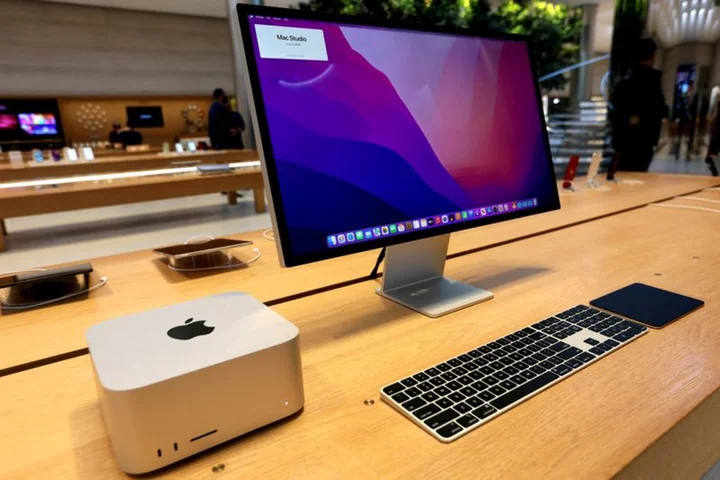
Apple expected to unveil new Macs as PC industry slump eases
By Stephen Nellis Apple is expected to unveil at an event on Monday new Mac computers and possibly
2023-10-31 03:51
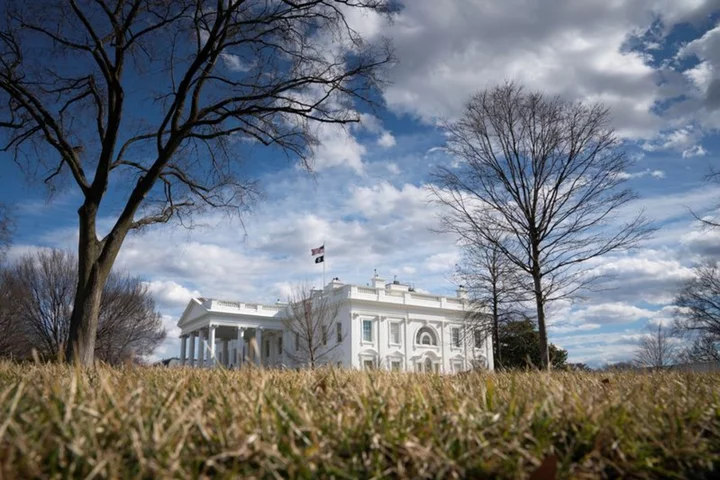
White House to share ransomware data with allies -source
By Trevor Hunnicutt and Zeba Siddiqui WASHINGTON The White House is working to finalize as soon as Tuesday
2023-10-31 03:29
